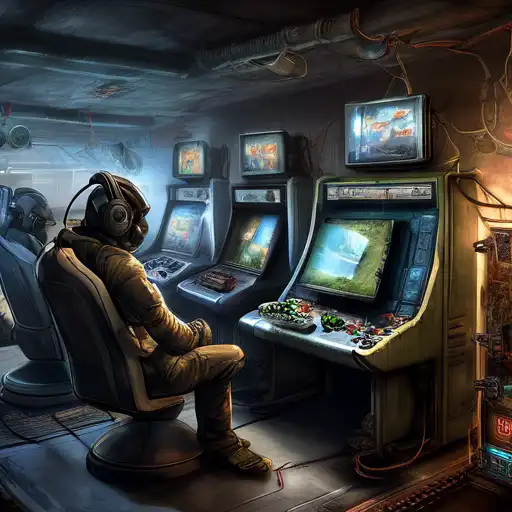The Revolutionary Journey of Gaming Technology Through the Ages
Gaming technology has undergone a remarkable transformation over the decades, evolving from simple pixelated screens to immersive virtual realities. This journey reflects not just advancements in technology but also changes in how we interact with digital worlds. In this article, we explore the pivotal moments in gaming technology that have shaped the industry into what it is today.
The Dawn of Gaming
The origins of gaming technology can be traced back to the 1950s and 1960s, with simple games like Tennis for Two and Spacewar! laying the groundwork. These early games were rudimentary by today's standards, but they sparked a revolution that would grow exponentially with the advent of home consoles in the 1970s.
The Rise of Home Consoles
The introduction of the Magnavox Odyssey in 1972 marked the beginning of home gaming. This was followed by the iconic Atari 2600 in 1977, which brought gaming into living rooms worldwide. These consoles used cartridge-based games, a significant leap forward in gaming technology.
The Golden Age of Arcades
Parallel to the rise of home consoles, the late 1970s and early 1980s saw the golden age of arcade games. Titles like Pac-Man and Donkey Kong became cultural phenomena, showcasing the potential of gaming technology to create engaging, interactive experiences.
The 3D Revolution
The 1990s introduced 3D graphics to gaming, with consoles like the Sony PlayStation and Nintendo 64 leading the charge. This era also saw the rise of PC gaming, with titles like Doom and Quake pushing the boundaries of what was possible in gaming technology.
The Online Gaming Boom
The late 1990s and early 2000s marked the beginning of online gaming, with platforms like Xbox Live and PlayStation Network enabling players to connect and compete globally. This period also saw the rise of massively multiplayer online games (MMOs), such as World of Warcraft, which redefined social interaction in gaming.
The Era of Mobile and Virtual Reality
In recent years, gaming technology has expanded beyond traditional consoles and PCs to include mobile devices and virtual reality (VR). Games like Pokémon GO have demonstrated the potential of augmented reality (AR), while VR headsets like the Oculus Rift offer immersive experiences that were once the stuff of science fiction.
The Future of Gaming Technology
As we look to the future, advancements in AI, cloud gaming, and haptic feedback promise to further revolutionize the gaming experience. With each technological leap, gaming becomes more immersive, interactive, and accessible, continuing its evolution as a dominant form of entertainment worldwide.
The evolution of gaming technology is a testament to human creativity and innovation. From simple beginnings to complex virtual worlds, gaming has become a cornerstone of modern culture, offering endless possibilities for entertainment, education, and social connection.
